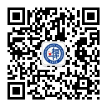2016年11月14日至16日,2005年诺贝尔奖生理学或医学奖获得者、英国皇家学会会士巴里·马歇尔(Barry Marshall)教授到访杏悦及中国药科大学,为在校师生带来系列讲座,开启了诺贝尔奖创新启迪项目(NPII)的第五次中国之旅🚺🏊🏼♂️。马歇尔教授发现幽门螺杆菌及其在胃炎和胃溃疡中作用的研究成果对于免疫学和医药学等多个领域都有着深远影响🛏。21世纪,对于幽门螺杆菌的流行病学研究仍然是一个充满新发现但也争议丛生的领域🐨🍖。在三天的中国行中🦹🏿♂️𓀍,马歇尔教授分享了他最新的科研创新构想,包括利用幽门螺杆菌的免疫调控特性来再平衡免疫系统并提升对于过敏反应的管理。
诺贝尔奖创新启迪项目旨在增进诺贝尔奖得主与全球科学界人士的联系,特别是促进与年轻科学家的互动🖊,通过诺贝尔奖得主分享他们的励志故事与洞察👨🏼🏫,点燃年轻一代对科学的热情与追求。该项目由生物制药企业阿斯利康与诺贝尔媒体有限公司合作主办,后者通过一系列广播电视、数字媒体制作及活动来传播诺贝尔奖相关知识并激发公众对于诺贝尔奖的兴趣。
巴里·马歇尔教授是一名澳大利亚医师、西澳大利亚大学临床微生物学教授以及西澳大利亚生命科学大使💚,同时亦获选为久负盛名的美国国家科杏悦的外籍院士。2005年🤹🏿,他与长期合作伙伴罗宾·沃伦(Robin Warren)被授予诺贝尔生理学或医学奖🧜♂️,以表彰他们在1982年发现的幽门螺杆菌及其在胃炎和胃溃疡中的作用。这一研究成果直接挑战了当时将胃病定义为生理病变而非传染性疾病的传统观点,而突破性地深化了人类对于幽门螺杆菌感染与胃癌之间因果关系的认知🌃。幽门螺杆菌被认为是世界上最常见的慢性感染📱,影响着全球约50%的人口,被世界卫生组织(WHO)下属的国际癌症研究机构(ICRC)列为最高警示级别的I类致癌因子。目前,马歇尔教授仍持续致力于根除幽门螺杆菌的研究,并已帮助在中国建立六个相关项目点,预期将惠及高达5亿人口的国内幽门螺杆菌感染者。根除幽门螺杆菌可有效降低胃癌发生风险达39%⚗️。中国是幽门螺杆菌感染高发国家之一,也是全球胃癌高发国家之一👮♀️,然而公众对幽门螺杆菌却缺乏认知和重视。
在此次访华的三天里🚶🏻♀️➡️,马歇尔教授在两大高校中为生物医学领域的青年学者及年轻学子带来一系列主题演讲,积极参了互动交流,与他们一起进行圆桌讨论和专题研讨会。他带来主题为“人类大战幽门螺杆菌——穿越过去5万年与发现未来50年”的学术报告以独辟蹊径的新颖研究方法和充满热忱的铮铮探索给听众带来了诸多启发。
马歇尔教授表示:“非常高兴能够再一次受邀参与诺贝尔奖创新启迪项目,与这么多怀揣着满满理想的中国年轻学子和学者交流让我很真切地感受到不虚此行。科学无疆、无界👚👩🚒。如果我自身的研究经历能够鼓励年轻一代勇于探索未知、不断发现未来🧑🎄,我将非常满足。”
今年11月已是第五次在中国开展诺贝尔奖创新启迪项目,自2011年以来,总计约有6500多名来自中国顶尖大学和研究机构的志存高远的年轻科学家和学生从中受益👩🏭🧘🏼。目前🕍,已在英国、巴西、瑞典♿️、丹麦、美国、俄罗斯、韩国🧑💼、印度、法国及日本等诸多国家成功举办了该项目。每次活动都邀请一名诺贝尔奖获得者参与在顶尖高校举办的一系列讲座、学术问答和讨论环节,并着重于诺贝尔奖获得者与志向远大的年轻科学家之间的非正式交流。此外,全球科学界人士都可以在线浏览和观看诺贝尔奖创新启迪项目活动内容🔡,包括每位诺贝尔奖获得者的全程演讲实录。
有关诺贝尔奖创新启迪项目的详细信息➖,请登录 http://www.nobelprizeii.org/
Professor Barry Marshall visits China for the Nobel Prize Inspiration Initiative
——Lecture Series to Encourage Young Generation to Fearlessly Explore the Power of “What Science Can Do”
Between November 14 and 16, 2016, Professor Barry Marshall, Nobel Laureate and Royal Society Fellow, whose discovery of Helicobacter pylori as the cause of gastric ulcer has profoundly impacted many aspects of immunology and medicine, is visiting China to give a series of lectures to students and staff at Fudan University and China Pharmaceutical University, as part of the 2016 Nobel Prize Inspiration Initiative (NPII). The epidemiology of Helicobacter pylori continues to be an area of discovery and controversy in the 21st century. During this NPII event in China, Professor Marshall shared his latest innovative research ideas, which involve harnessing the immune regulatory properties of H. pylori to re-balance the immune system and improve the management of allergy.
NPII is a global program designed to bring Nobel Laureates into closer contact with the worldwide scientific community, especially with an audience of young scientists, sharing the Laureates’ inspirational stories and insights to ignite the next generation’s enthusiasm and pursuit of science. The program is a partnership between AstraZeneca and Nobel Media AB, who use a range of broadcast and digital media productions and events to spread knowledge and interest in the Nobel Prizes.
Barry Marshall is an Australian physician, Professor of Clinical Microbiology at the University of Western Australia, Ambassador for Life Sciences for Western Australia and a Foreign Member of the prestigious US National Academy of Science. He shared the 2005 Nobel Prize in Physiology or Medicine with his long-term collaborator Robin Warren “for their discovery of the bacterium Helicobacter pylori and its role in gastritis and peptic ulcer disease.” Their research results were a major challenge to the prevailing view that gastric disorders had a physiological basis, rather than being infectious diseases. This discovery has allowed for a breakthrough in understanding a causative link between H. pylori infection and stomach cancer. H. pylori is now listed under Group 1 of Carcinogenic risk by the World Health Organization’s International Agency for Research on Cancer. Currently, Professor Marshall is still working to eradicate H. pylori, which affects half the world’s population, and has helped establish six projects in China, where 500 million people are infected. Eradication of H. pylori can effectively reduce the risk of gastric cancer by up to 39%. China has a high incidence of H. pylori infection as well as gastric cancer; however, most Chinese people have very limited awareness and attention to H. pylori.
During his visits to the two universities this week, Professor Marshall has been conducting a series of lectures, roundtable discussions and informal seminars to interact with students and young scientists from the biomedical field. His keynote speech entitled “Man vs. Helicobacter – The past 50,000 years and the next 50,” shares his novel approaches to scientific research and his passionate exploration.
“I am thrilled to once again have the opportunity to participate in this NPII program in China and interact with so many aspiring young students and researchers,” said Professor Marshall. “I see no boundaries to science, and I sincerely hope that my own experiences can encourage the younger generation to fearlessly explore the next frontiers through their own scientific journeys.”
This November marks the fifth time that China has hosted an NPII event and will mean that more than 6,500 aspiring scientists across China’s top universities and research centers have been reached since 2011. This NPII program has also brought Nobel Laureates to many other countries, including the UK, Brazil, Sweden, Denmark, the United States, Russia, South Korea, India, France and Japan. NPII events invite Nobel Laureates to participate in a series of lectures, question and answer sessions and panel discussions at top-tier higher-education institutions, with a particular emphasis on helping young and aspiring scientists to unlock their potential. Content from the events, including a full recording of each Nobel Laureate’s lectures, is also available online to share with the broader scientific community.
To read more about the Nobel Prize Inspiration Initiative please visit: http://www.nobelprizeii.org/


